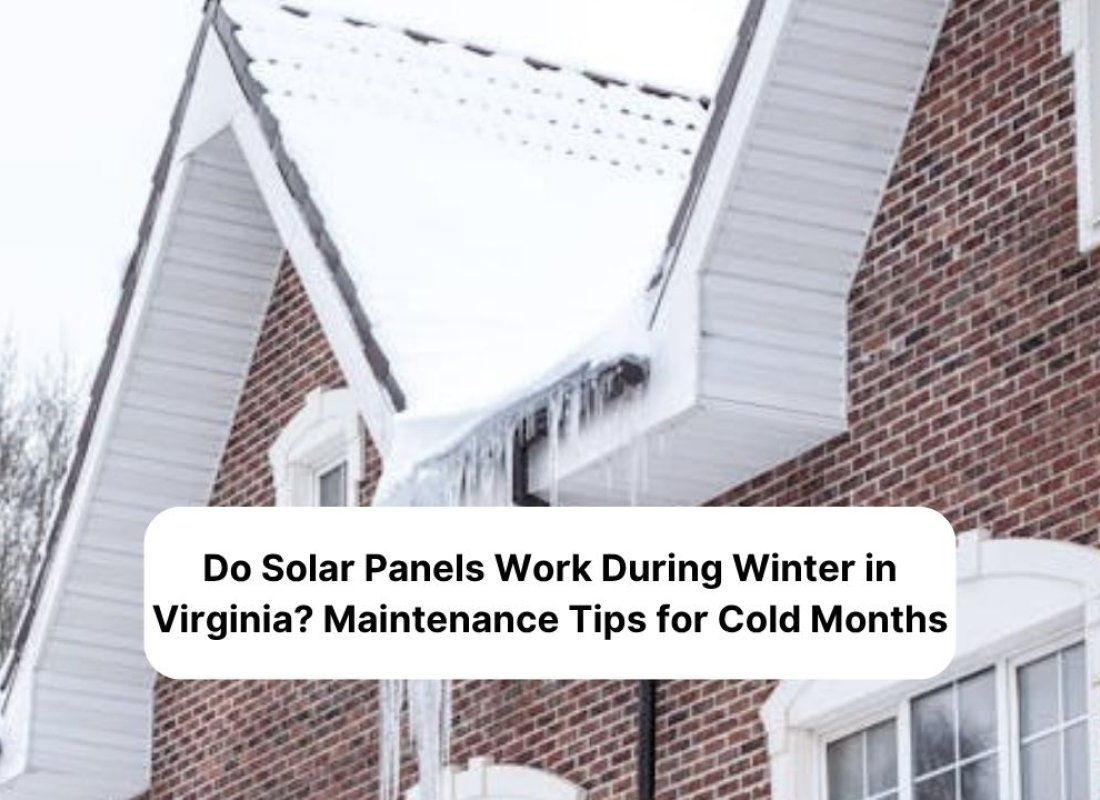
TABLE OF CONTENTS
- How Cold Weather Affects Solar Panel Efficiency
- Key Factors Influencing Solar Performance During Winter
- Does Snow Impact Solar Energy Production?
- Dealing with Snow on Solar Panels
- Natural and Safe Snow Removal Techniques
- How to Optimize Your Solar System for Winter Conditions
- Do Solar Batteries Work in Winter?
- How Net Metering Supports Winter Energy Needs
- Using Solar Power to Prepare for Winter Power Outages
- Bottom Line
Key Takeaways
- Solar Panels Remain Effective in Cold Weather - Despite shorter daylight hours and occasional snow, solar panels continue to function in Virginia winters. Cold temperatures can actually boost efficiency, as solar panels work better in cooler conditions.
- Snow and Seasonal Factors Can Temporarily Reduce Output - Snow accumulation can block sunlight and halt electricity production until it melts or is safely removed. Other factors such as lower sun angles and fewer daylight hours also impact performance. However, most snow naturally slides off angled panels quickly, especially under sunny or above-freezing conditions.
- Proper Maintenance and Battery Storage Enhance Winter Reliability - Winter system performance can be optimized through steps like trimming overhanging branches, monitoring energy output, scheduling inspections, and safely clearing snow. Pairing solar with battery storage ensures continued power during outages and allows homeowners to store excess energy from sunnier months using Virginia's net metering program.
Virginia receives an average of 205 sunny days per year, which is slightly above the national average. This makes it a promising location for solar energy production. However, many homeowners still wonder if their solar panels will keep performing reliably once winter arrives.
Reach out today!
The truth is that solar panels do work in winter, even when it’s cold and snowy. In fact, cold temperatures can actually improve panel efficiency. What really matters is the amount of sunlight and how you maintain your solar system during the colder months.
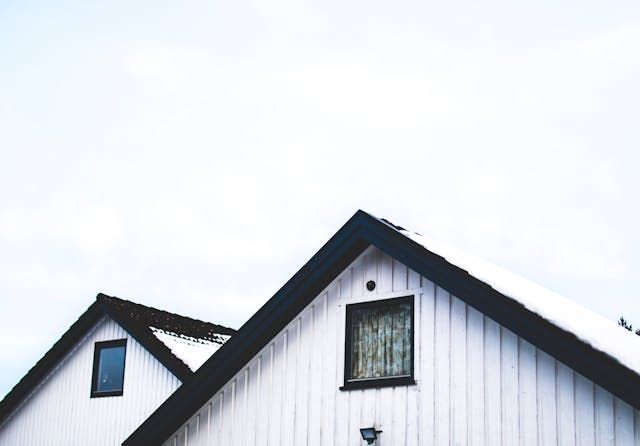
To help Virginia homeowners make the most of their solar investment year-round, we at
Vesta Home Energy put together this informative guide!
How Cold Weather Affects Solar Panel Efficiency
Solar panels convert sunlight into electricity. They do not rely on heat, so cold temperatures do not prevent them from working. In fact, solar panels can be more efficient in cooler weather because heat can actually reduce the effectiveness of the
photovoltaic (PV) process.
Virginia’s winter temperatures are not extreme enough to damage panels but are cold enough to improve their overall efficiency when exposed to sunlight. What matters most in winter is sunlight availability.
Days are shorter and the sun sits lower in the sky, which can reduce the total energy your system generates. However, the system will still produce electricity as long as sunlight reaches the panels.
Key Factors Influencing Solar Performance During Winter
The following factors affect how well your solar system performs during the colder months:
- Sunlight Hours - Fewer daylight hours mean less total solar production.
- Sun Angle - The sun’s lower angle in winter can affect how directly it hits the panels.
- Shading - Trees or buildings that don’t cast shadows in summer might do so in winter.
- Snow Coverage - Even light snow can block sunlight if it covers the panels.
- System Tilt - The angle of your panels can affect how much sun they capture and how quickly snow slides off.
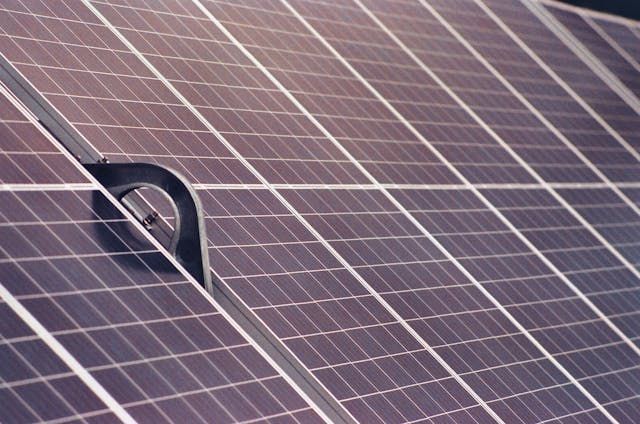
Understanding these factors can help you manage expectations and take steps to improve system output.
Does Snow Impact Solar Energy Production?
Yes, snow can temporarily reduce solar production. When panels are covered in snow, sunlight cannot reach the solar cells, which means electricity generation stops until the snow melts or is removed. Fortunately, most solar panels are installed at an angle, and their smooth surface helps snow slide off once the sun comes out or the temperature rises.
Heavy snowstorms may cause production to dip for a day or two, but in Virginia’s mild winters, this is usually not a major issue. Light snow tends to melt or slide off on its own within hours or a day.
Reach out today!
Dealing with Snow on Solar Panels
While snow is not a long-term issue, it’s important to monitor your system after snowfall in
Virginia. If snow does not slide off quickly or accumulates in large amounts, it can block production for extended periods.
Some homeowners choose to clear the snow themselves, but this is discouraged. The risk of injury or damaging the panels is high. Instead, consider having
professional service providers install snow guards or a panel heating system if snow accumulation becomes a frequent concern.
Natural and Safe Snow Removal Techniques
If you decide to clear snow off your panels, here are safe methods to consider:
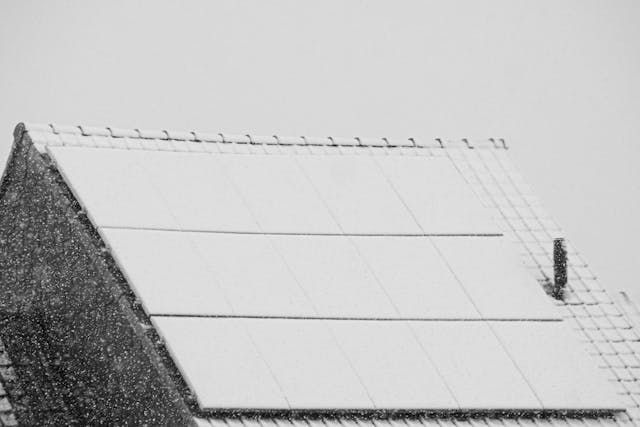
- Use a soft-bristled roof rake with an extendable handle. These tools are specifically designed to remove snow from rooftops without causing damage.
- Let sunlight do the work. If temperatures are above freezing and the day is sunny, snow will usually melt and slide off naturally.
- Do not use hot water. Pouring hot water on cold panels can cause them to crack due to thermal shock.
- Avoid climbing on your roof. Safety should always be the top priority.
If your
panels are ground-mounted or at a low height, snow removal can be easier and safer.
How to Optimize Your Solar System for Winter Conditions
These are several ways to prepare your solar energy system for winter:
- Trim overhanging branches to reduce shade and prevent debris buildup.
- Monitor your system’s performance using your solar monitoring app or dashboard.
- Schedule a winter inspection to ensure your panels and wiring are in good condition.
- Adjust your panel tilt angle if your mounting system allows it, to capture more winter sunlight.
- Check for obstructions like snow, leaves, or dirt that could block sunlight.
Do Solar Batteries Work in Winter?
They do function in winter, but a battery's performance can be
affected by temperature. Cold weather may reduce a battery’s ability to store and discharge energy efficiently. However, many systems are installed in insulated or climate-controlled areas to avoid this issue.
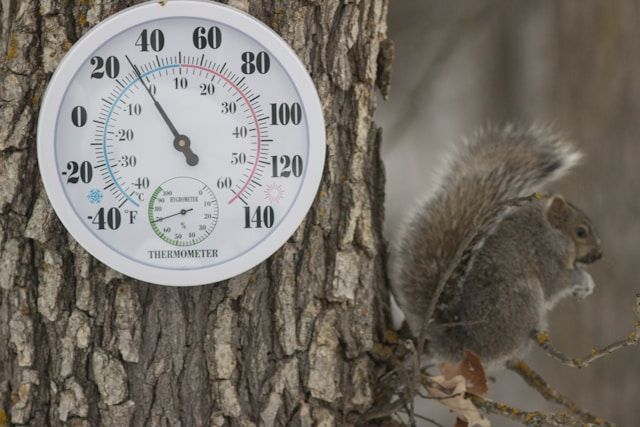
To get the most from your battery in winter:
- Keep it installed in a temperature-stable location.
- Avoid deep discharges when it’s especially cold.
- Monitor its status regularly using your solar monitoring system.
How Net Metering Supports Winter Energy Needs
Virginia offers net metering, which allows you to earn credits for excess solar energy your system produces during sunnier months. These credits can be used to offset your energy use during times when your panels produce less, such as in winter.
This means you can still enjoy lower utility bills in winter even if your system is not generating at full capacity.
Reach out today!
Using Solar Power to Prepare for Winter Power Outages
Power outages are more common in winter. A solar system paired with battery storage can provide backup power during outages, allowing you to keep essential appliances running.
Unlike grid-tied systems alone, which shut down during outages for safety reasons, solar-plus-storage systems can continue supplying electricity. This setup is particularly useful for homes with medical equipment, electric heating, or remote locations.
Bottom Line
Solar panels do work in Virginia during winter. Cold weather can actually improve their efficiency, though shorter days and snow can reduce output temporarily. Fortunately, with a few simple maintenance practices and the right system setup, homeowners can keep their solar systems productive even in the coldest months.
Vesta Home Energy helps Virginia homeowners maximize their solar energy systems in all seasons. Contact us today for a consultation!
Reach out today!


